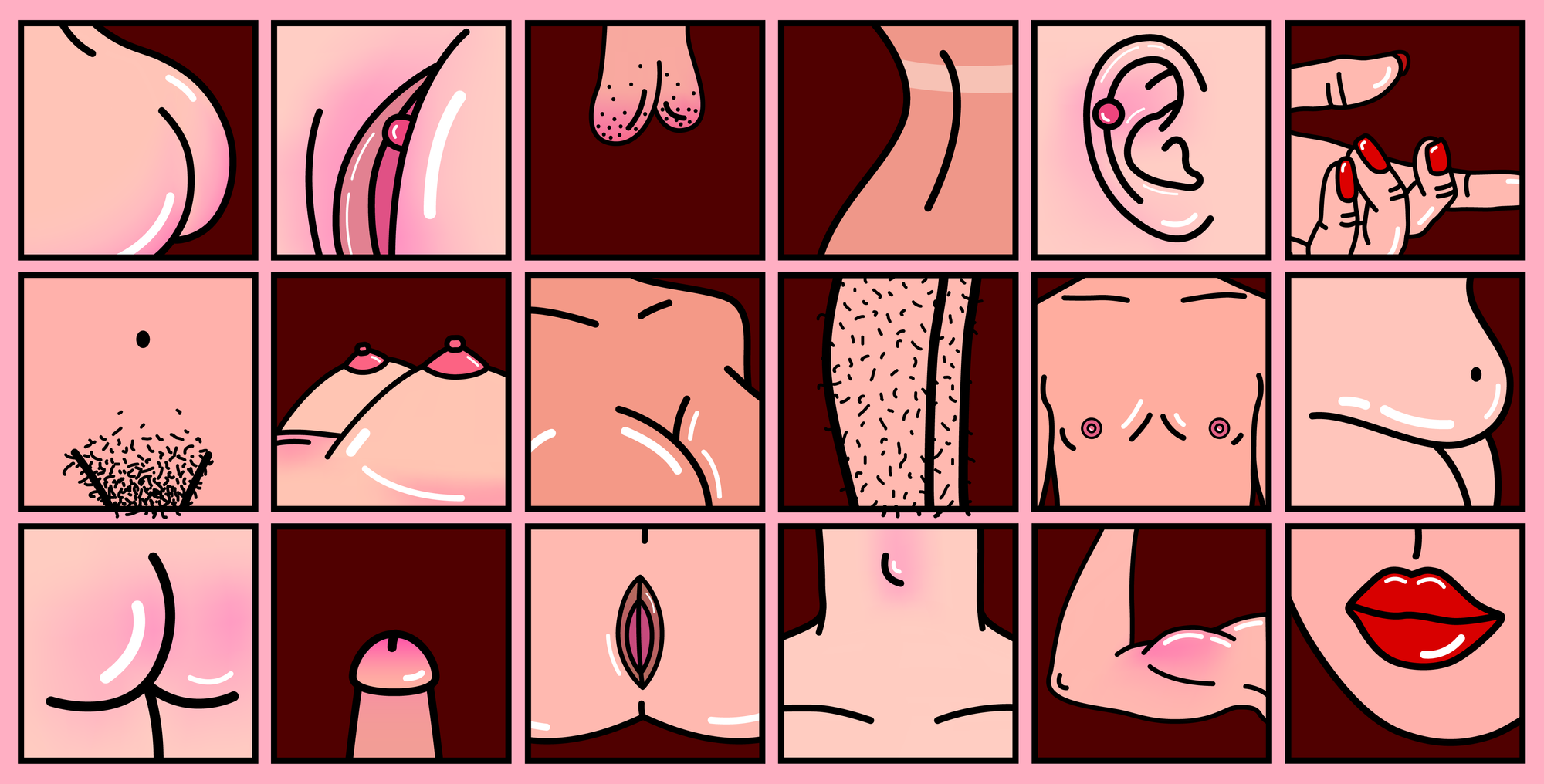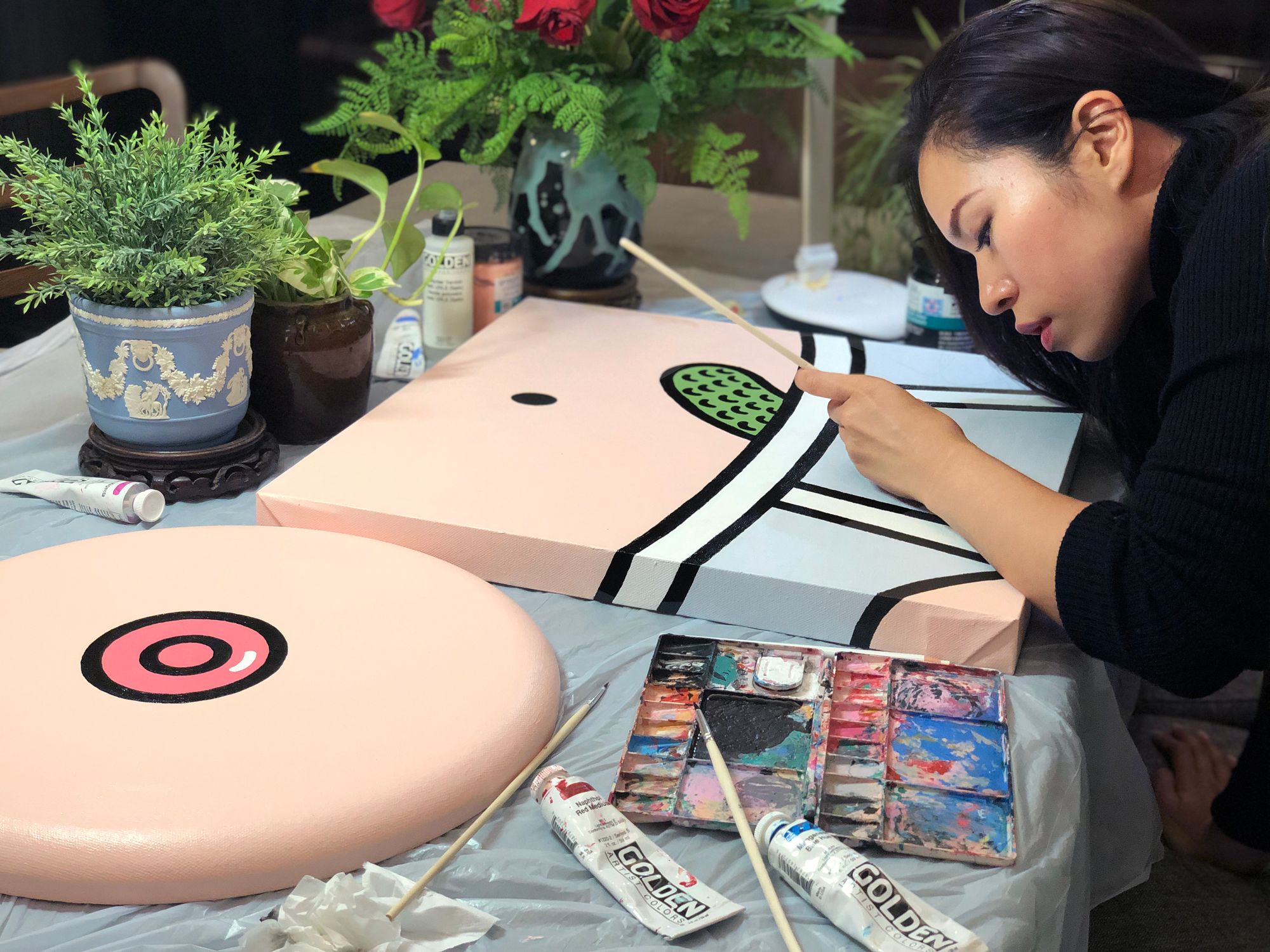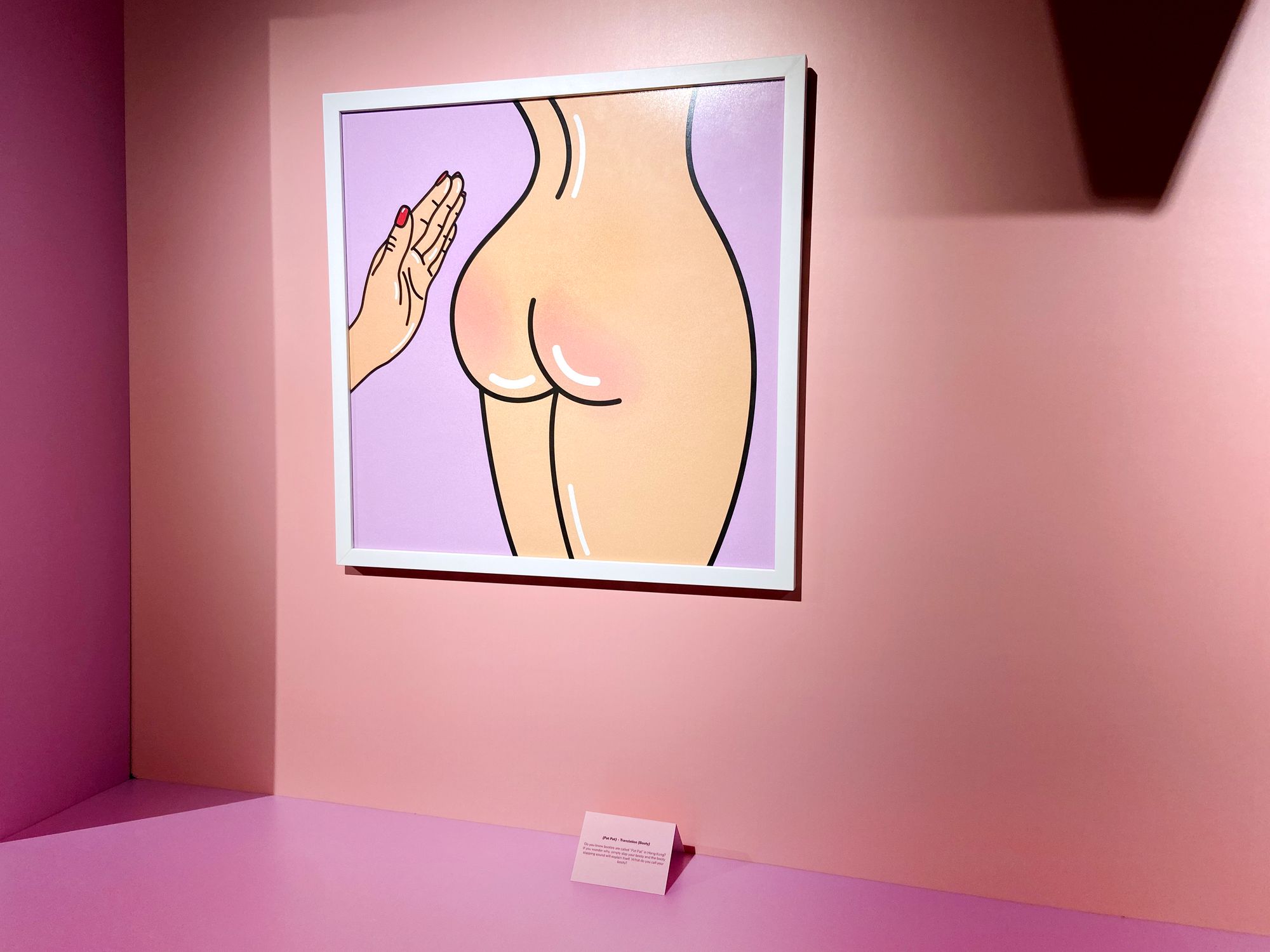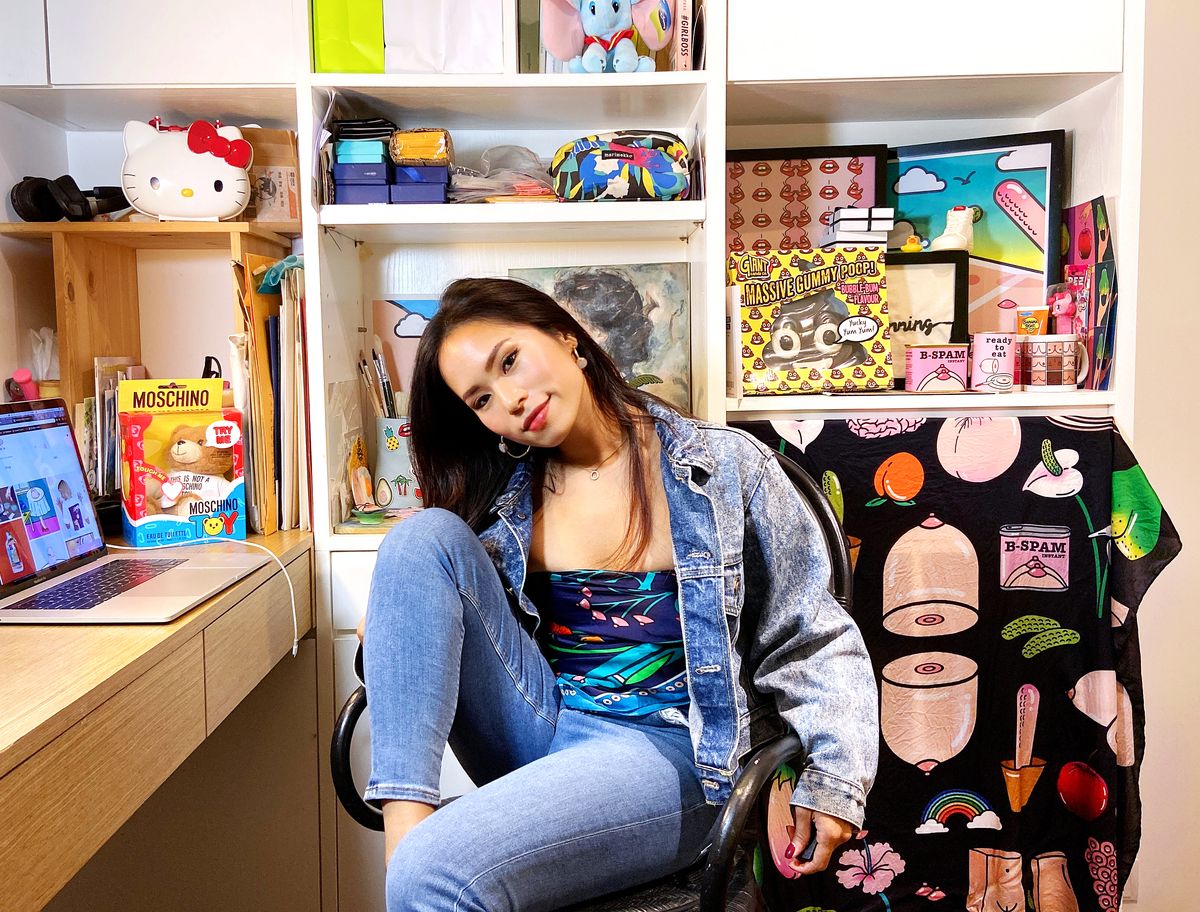Boobies. Did we get your attention? Claudia Chanhoi is an illustration artist who uses humor and sarcasm through her cheeky illustrations to encourage people to be more open about subjects that might otherwise be taboo.
Welcome to the new Spotlight series by TMS, where we highlight businesses and people around Hong Kong making waves. This week, we’re speaking with Claudia Chanhoi, an illustration artist.
If you were ever to stumble across Claudia Chanhoi’s works of art, you would come face to face with comical (and often very large) renditions of boobs, butts, vaginas, penises and almost every angle genitals have to offer. In short, Claudia Chanhoi is an illustration artist.
“I wanted to do something that really matters to me, which is female empowerment and sexual objectification of women,” she tells TMS. “The first thing I thought about would be, if people have been using womens’ bodies as sex objects, then I might as well turn womens’ bodies into sex objects.” But Chanhoi is not a product designer; she is a painter and a digital artist, talented with brush strokes and computers.
As she puts it, her cheeky illustrations challenge the taboo on women’s sexuality and its role in society. She uses humor and sarcasm to encourage people to be more open about subjects that might otherwise be taboo. She now has almost 19,000 followers on Instagram, has had over eight solo exhibitions, has given multiple talks on topics ranging from women's sexuality to entrepreneurship and has partnered with the likes of NBC, Lush and even Playboy.
Are genitals actually offensive?

We all have them. So why are people still shocked by genitals?
Having done an entire TedTalk on this topic, Chanhoi is the perfect person to ask. To save the suspense, Chanhoi argues that, no, genitals are not offensive, and they shouldn’t be. “Our society has been offending our genitals constantly, and we keep on internalizing the shame. Genitals are just like any other body parts; they have different functions and purposes,” she says.
Chanhoi believes it will take some time before the taboo surrounding genitals will ease and argues there’s a cultural stigma behind why people are so offended by private parts.
“When we start learning [about] our genitals, most of the time, they are replaced by nicknames, right?” she says. “Teachers and parents would give us a weird attitude towards that kind of topic … We start learning that genitals are very different, and they are quite taboo and a little bit awkward, a little bit dirty.” She goes further and discusses how swear words link to genitals in both English and Cantonese.
“It's going to take us a very long time to remove that kind of negative association,” she points out when asked what she thinks can be done to remove this stigma. She believes that solid, in-depth sex education can be a good first step to improving people’s views surrounding the topic. Chanhoi thinks this would greatly help improve people’s sexual well-being and relationships with partners.
A discussion on nudity and self-expression

“I’ve been thinking whether we are using empowerment as an excuse to glorify the idea of self-sexualization, and I don't know if being nude is just being nude or are we trying to sexualize ourselves to get people’s attention or validation?” Chanhoi says. With her social media following in the thousands, she’s no stranger to the vast content on Instagram.
“We see a lot of attractive, young, especially women, sexualizing themselves, and then they can make profit and build their business empire off of self-sexualization and sex appeal,” she says. Chanhoi voices her concern about younger content consumers taking an example and building an unhealthy relationship with their own bodies. She emphasizes that she has no problem with people wearing revealing clothing. But, when it’s used as a way for people to blast that they are comfortable in their skin, she sometimes wonders if the message is sincere or rather attention-seeking.
As a female creator who is deeply feminist, Chanhoi urges other creators considering baring all online to think if they’re doing it out of self-empowerment and not just for profit.
This Spotlight was brought to you by Women of Hong Kong

A special thank you to Women of Hong Kong for sponsoring this Spotlight. Women of Hong Kong is a community in the city with the goal of connecting women from every background. Whether you’re a mom, a student, or a new face in the city, the community welcomes all women from all walks of life to join and support one another.
Put a label on it

“My advice would be probably just to let go of the labels,” Chanhoi says. “Right now, we have lots of different labels.” Whether it's fem, masc, non-binary or anything else, she feels that growing up with too many labels could encourage young people to place themselves in a box. “I know it’s easier said than done, but if we could actually get rid of the labels, then I feel like you could find your own way to figure out yourself.
“Right now, we have so many labels, like misogyny, feminist, anti-feminist. ‘If you believe in that, then you're not a feminist. You're a bad feminist,’” she says, expressing how tired she is of the restriction and inability to believe in more than one concept at a time. “This kind of topic is always quite complicated,” she continues. “It’s not just so black and white.
“I feel like a lot of people are feeding women the idea that in order to be strong and independent, you have to distance yourself from your femininity … I really don't believe in that,” Chanhoi says. As a feminist herself, she expresses how she ponders the question of harnessing inner masculinity in order to fight for women's rights.
“I feel like the best way is just not to act like someone else, you know?” she says.





Comments ()